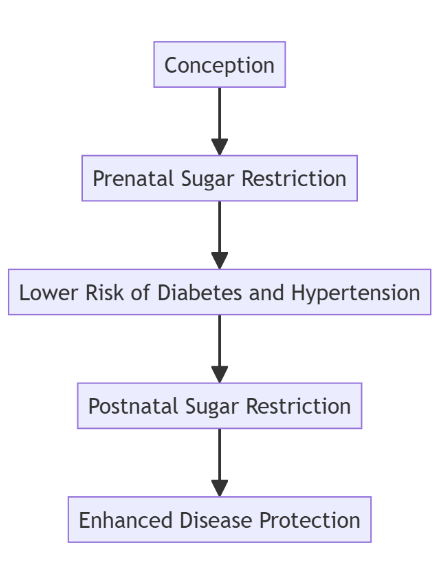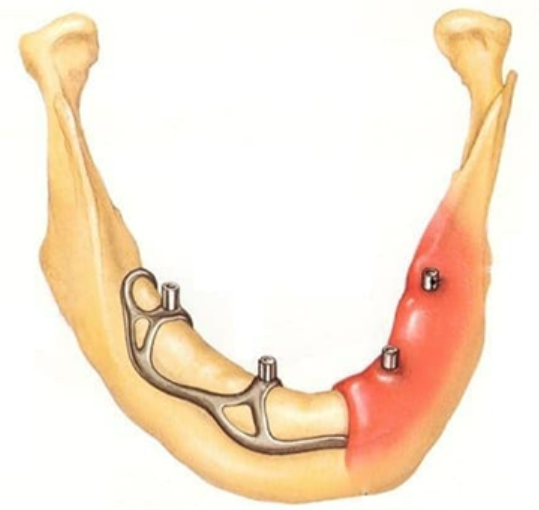Limiting sugar intake at an early age reduces the risk of developing many chronic diseases: new evidence
This news is interesting from the point of view of dentistry because diabetes leads to dental problems that are very difficult to treat. In many cases, implants are not possible if the patient has diabetes. This is why it is so important to convey to patients that temporarily limiting sugar intake can have a positive impact on their children’s health. There are studies that show that limiting sugar intake in the first 1,000 days of life is paramount to ensuring a healthier future. This period, spanning from conception to the first two years of life, plays an important role in determining individual risk of developing chronic diseases such as type 2 diabetes and hypertension. New research offers compelling evidence that limiting sugar intake at this foundational stage can provide long-term health benefits.
Major Findings From Recent Research
A groundbreaking study published in Science sheds light on the profound influence of early-life sugar restrictions. It reveals that individuals who experienced limited sugar intake during their first 1,000 days had up to a 35% lower risk of developing Type 2 diabetes and 20% less risk of hypertension as adults. The analysis leveraged a unique natural experiment arising from World War II sugar rationing policies in the United Kingdom.
Researchers from the Dornsife College of Literature, Arts and Sciences at the University of Southern California, McGill University in Montreal and the University of California at Berkeley provided the data.
During the war, the UK enforced strict sugar rationing, capping sugar consumption at approximately 8 teaspoons (40 grams) per day. Following the end of rationing in 1953, sugar consumption surged to 16 teaspoons (80 grams) per day. Researchers harnessed this stark contrast in sugar exposure to investigate the long-term health outcomes using data from the U.K. Biobank—a comprehensive repository of genetic, lifestyle, and medical information.
Prenatal and Postnatal Effects
The study underscores that prenatal exposure to sugar-scarce conditions alone was enough to decrease chronic disease risk. However, continued sugar restriction after birth magnified the health benefits. When solids were introduced postnatally in a low-sugar environment, children experienced even greater protective effects.
To illustrate these concepts, consider the following diagram outlining the sugar restriction timeline and corresponding health outcomes:
 The Natural Experiment of World War II
The Natural Experiment of World War II
Unique Opportunity for Longitudinal Analysis
World War II sugar rationing inadvertently created a controlled environment that separated populations into distinct groups based on sugar exposure levels during early life. This division provided researchers with a rare opportunity to track the long-term health outcomes of these populations. By comparing individuals conceived or born just before and after September 1953, scientists obtained robust causal evidence regarding the relationship between early sugar consumption and adult health.
Key Insight: Those exposed to sugar-scarce environments exhibited lower disease onset rates. For individuals later diagnosed with diabetes or hypertension, the onset of disease was delayed by four and two years, respectively.
Economic and Societal Implications
Reducing Healthcare Costs and Enhancing Life Quality
Preventing chronic diseases like Type 2 diabetes can significantly reduce healthcare expenditures and improve quality of life. In the United States, individuals with diabetes face an average of $12,000 in medical expenses annually. Moreover, an earlier diagnosis is associated with a substantial reduction in life expectancy, with every decade of earlier onset decreasing lifespan by three to four years.
The Broader Impact of Early Interventions
Reducing added sugar consumption in early life could translate into longer, healthier lives for future generations. Delaying or preventing diabetes and hypertension not only benefits individual health but also mitigates the financial strain on healthcare systems worldwide.
Public Health Concerns and Recommendations
Addressing Excessive Sugar Intake in Early Childhood
Modern diets, especially in industrialized nations, often include high levels of added sugars. Alarmingly, even baby and toddler foods are laden with sugars. The pervasive marketing of sugary products to children exacerbates the challenge parents face in adhering to nutritional guidelines.
Leading health organizations recommend minimizing sugar intake during early childhood. For instance, the World Health Organization and the U.S. Department of Agriculture advise against any added sugar for children under two years old. For adults, they recommend no more than 12 teaspoons (50 grams) of added sugar daily.
Policy Measures and Industry Accountability
Public health experts urge the implementation of robust policies to combat the sugar crisis. Key measures include:
- Reformulating baby foods to reduce sugar content.
- Regulating advertisements targeting children to minimize exposure to sugary snack promotions.
- Imposing taxes on sugar-laden products to discourage excessive consumption.
Paul Gertler of UC Berkeley emphasizes the gravity of the situation, likening early sugar consumption to tobacco use. He advocates for comprehensive regulations to hold food manufacturers accountable.
Future Research Directions
This study is the first phase of an extensive research initiative exploring additional outcomes linked to early-life sugar restrictions. Ongoing investigations aim to examine how sugar exposure influences educational attainment, economic prosperity, chronic inflammation, and cognitive health in later years.
The data collected promise to deepen our understanding of how childhood nutrition shapes lifelong well-being. By unraveling these connections, society can take meaningful steps toward enhancing public health through early interventions.
In conclusion, prioritizing reduced sugar intake during the first 1,000 days of life represents a crucial strategy for preventing chronic diseases and promoting healthier, longer lives. The evidence is clear: early-life nutrition has a lasting impact, and taking action now can benefit generations to come.
Sources
- ScienceDaily – Restricting sugar consumption in utero and in early childhood significantly reduces risk of midlife chronic disease – October 31, 2024
- Science – Exposure to sugar rationing in the first 1000 days of life protected against chronic disease – October 31, 2024













